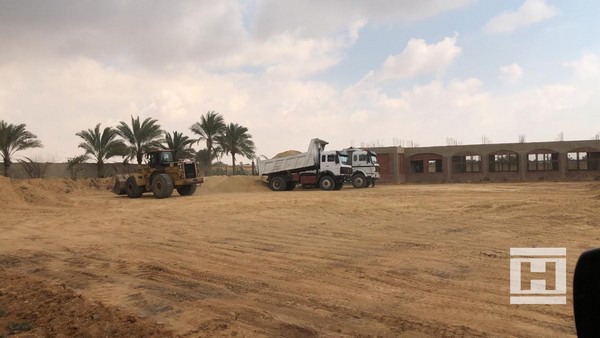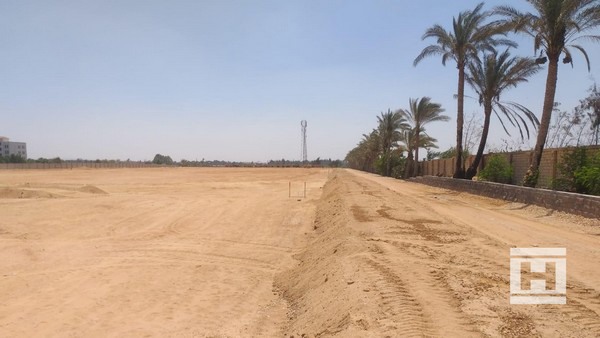The construction of a unique project has started: not only will this be the first semi-closed glass lettuce greenhouse in Egypt, but anywhere on the African continent. Just outside Cairo, Van der Hoeven Horticultural Projects will deliver a turn-key project in which both climate and plant density are fully optimised for the entire cultivation process. The total size of the greenhouse is approximately 2.5 hectares, in which high-quality herbs and lettuce will be grown. Which techniques and solutions are used? And what does this yield for the customer?
Horticultural technology
In 2018 Van der Hoeven began to work closely with a major regional investor along with an experienced local team of growers and engineers, to build the continent’s first top-tech horticultural project. The Van der Hoeven team set to work on the complex issue: adapting the European standard designs to fit local circumstances, to build a project with the most advanced greenhouse technology.

Smart solutions for a complex issue
Lettuce cultivation in a desert climate is not an easy task. It is a challenge to keep the indoor climate cold and humid for the lettuce to thrive, while the outside environment is hot and arid. Van der Hoeven designed a fully electric greenhouse that combines the benefits of both a semi-closed and closed greenhouse without using any fossil fuels. During the hottest seasons, the greenhouses uses chillers to run completely closed, while during the milder winter time the greenhouse opens up. Where a semi-closed system saves energy, closing the greenhouse reduces the CO2 demand by 75%. Additionally, in a closed system, all water evaporated by the plants is reused within the greenhouse, reducing the water demand to almost zero. A combination of such systems allows for an indoor climate that is optimal throughout the entire year, even in the extreme Egyptian summers.
Plant density is optimised by using a mobile gutter system. The grower can achieve increased cultivation efficiency per square meter compared to working with a regular cultivation system. Another advantage of this system is that human actions are not required during the cultivation process until the moment of harvesting: a smart solution that is efficient and effective.

That extra mile
Over 1.5 million kg of high-quality lettuce and herbs will be grown every year. Growing them in the semi-closed greenhouse makes the crop extra sustainable and free from pesticides. The end product is intended for both the Egyptian market and export market. "In order to respond proactively to the needs of the consumer, we continuously go that extra mile. We seek to connect with the customer by conducting joint market research into the popularity of various lettuce and herb varieties. This is to be able to optimally match demand with production and thus maintain a good market position with little waste," says the team with Van der Hoeven.
The construction of this project will start in July 2020 and completion is planned for June 2021.

